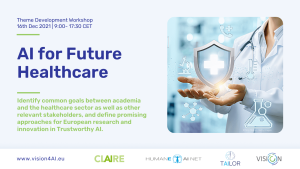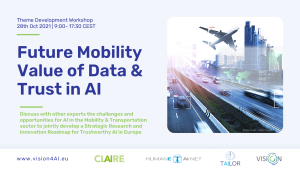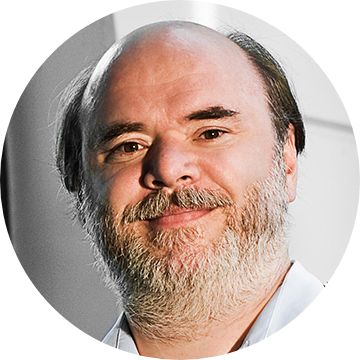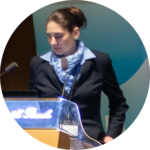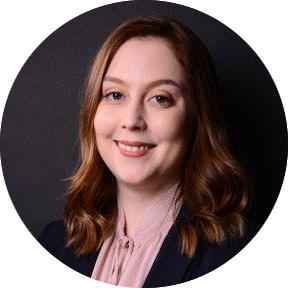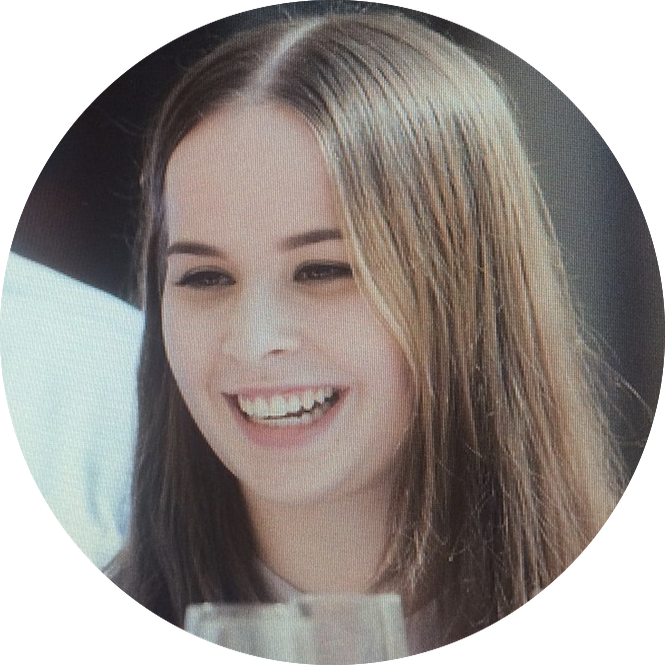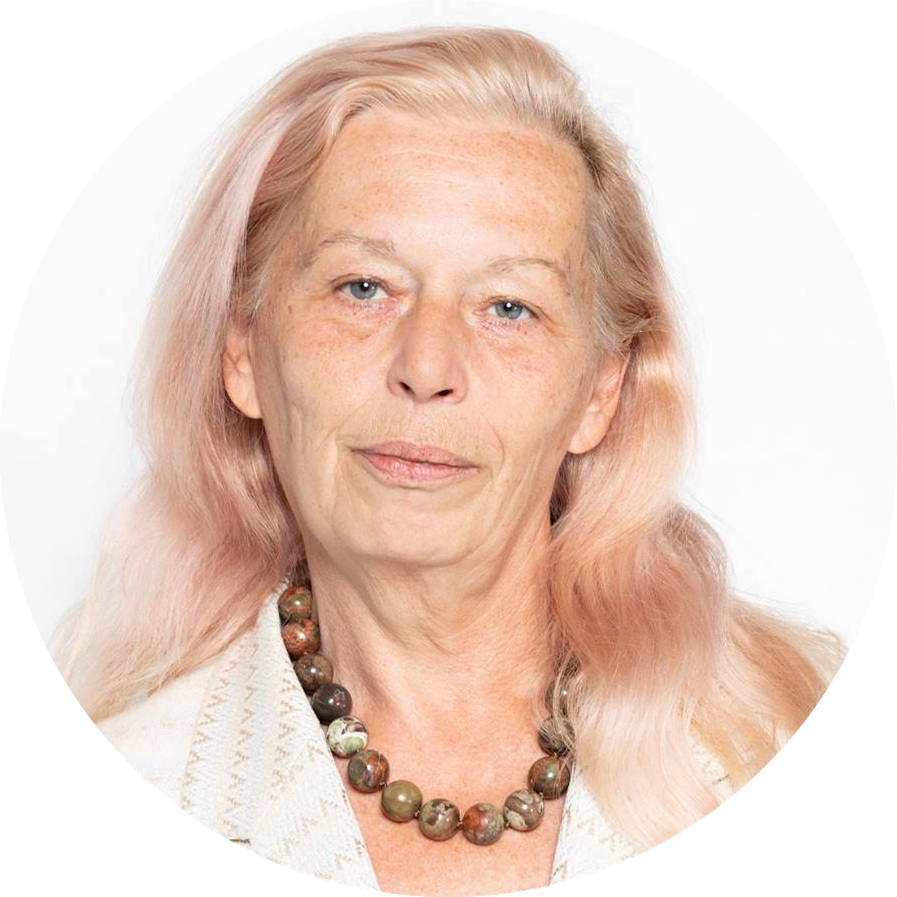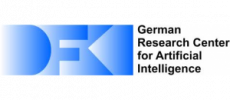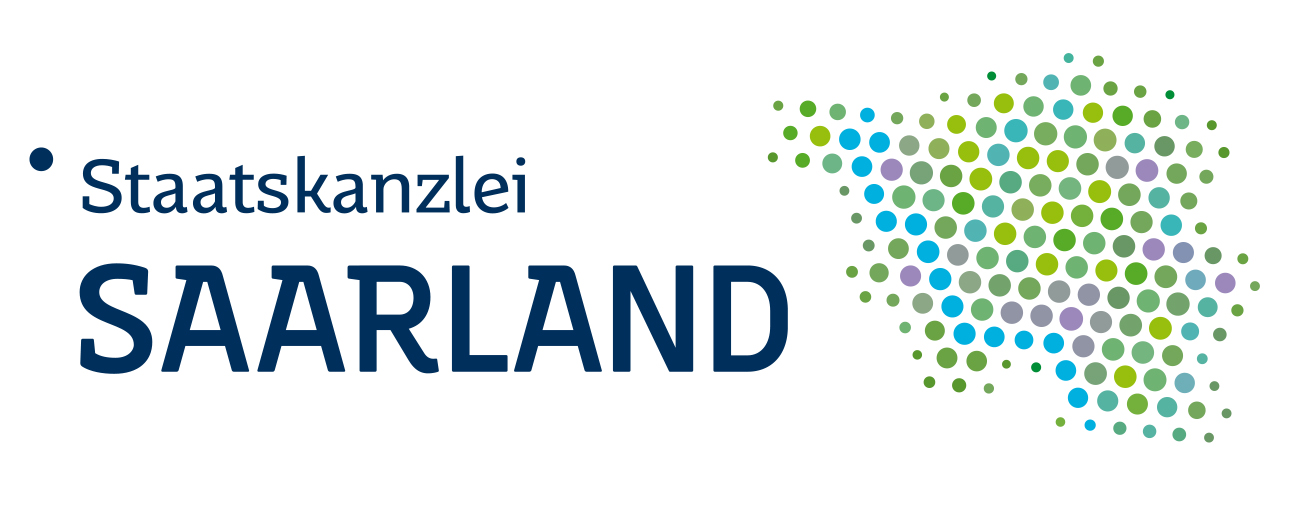CLAIRE | Saarbrücken
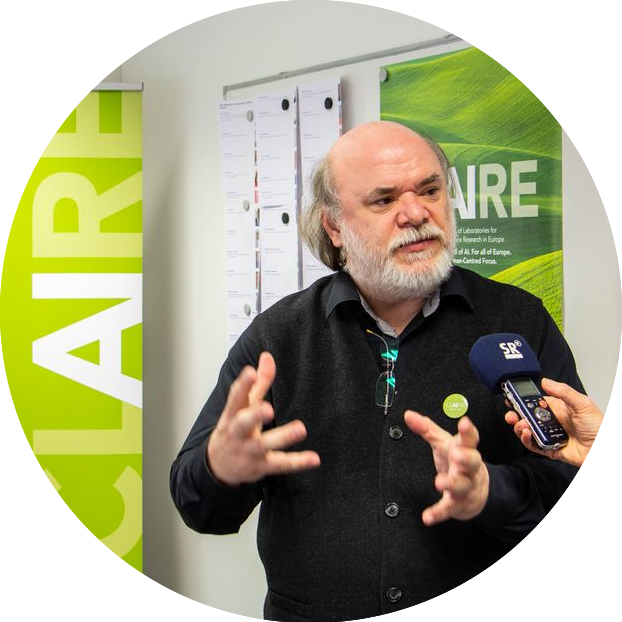
« Le CERN est un excellent modèle de ce que nous envisageons de réaliser avec CLAIRE. La recherche fondamentale est effectuée par de nombreux excellents chercheurs et laboratoires répartis en Europe et dans le monde. Mais en coordonnant leurs recherches, ils obtiennent un effet de levier beaucoup plus important et une reconnaissance plus large dans tous les domaines. »
Prof. Dr.-Ing. Philipp Slusallek, Vice-Chair of the Board and Director of Strategy
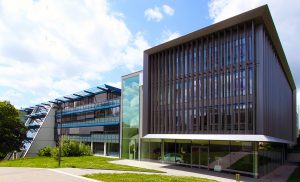
Établis en avril 2019 en tant que tout premier bureau CLAIRE, nous sommes situés au DFKI Saarbrücken, au cœur du triangle frontalier entre la France, le Luxembourg et l’Allemagne. Cet emplacement offre une opportunité parfaite pour la coopération dans la Grande Région et au-delà, c’est pourquoi nous sommes le point de contact pour cette région, l’Allemagne et même l’Autriche. Parmi de nombreuses autres activités, notre objectif principal est de mettre en relation le monde universitaire et l’industrie. C’est pourquoi nous sommes principalement impliqués dans le réseau d’innovation nouvellement créé (membres à but lucratif de CLAIRE) et dans les European Networks of AI Excellence Centers.
Le Centre de recherche allemand pour l’intelligence artificielle (DFKI) était l’une des institutions fondatrices lors de la création de CLAIRE en 2018, et le professeur Philipp Slusallek, qui est directeur exécutif au DFKI de Sarrebruck et directeur scientifique du département de recherche Agents et réalité simulée du DFKI, est l’un des trois co-initiateurs de CLAIRE. Depuis la création de CLAIRE AISBL en janvier 2020, il en est également le vice-président du conseil d’administration et le directeur de la stratégie. Le bureau allemand de CLAIRE soutient le professeur Philipp Slusallek dans ce rôle et contribue également à l’élaboration et à la mise en œuvre des structures et processus internes de CLAIRE. En outre, nous assurons avec succès la liaison avec les gouvernements nationaux et régionaux, notamment avec nos pays voisins, le Luxembourg et la France.
TDW III: AI for Future Healthcare
16.12.2021 9:00- 17:00 CEST
Identify common goals between academia and the healthcare sector as well as other relevant stakeholders, and define promising approaches for European research and innovation in Trustworthy AI.
Theme Development Workshops cut across multiple ICT-48 Networks of AI Excellence Centres while bringing together researchers, industry representatives, and other stakeholders to identify industrial trends and needs and match these to AI capabilities in Europe. TDWs are co-organised by the VISION project in close cooperation with the TAILOR and HumanE-AI-Net projects as well as with CLAIRE AISBL.
TDW II: Future Mobility – Value of Data & Trust in AI
28.10.2021 9:00- 17:30 CEST
Discuss with other experts the challenges and opportunities for AI in the Mobility & Transportation sector to jointly develop a Strategic Research and Innovation Roadmap for Trustworthy AI in Europe.
Theme Development Workshops cut across multiple ICT-48 Networks of AI Excellence Centres while bringing together researchers, industry representatives, and other stakeholders to identify industrial trends and needs and match these to AI capabilities in Europe. TDWs are co-organised by the VISION project in close cooperation with the TAILOR and HumanE-AI-Net projects as well as with CLAIRE AISBL.
L’IA de confiance – Vision irréalisable ou mission sociale ? Opportunité ou fardeau ? Comment la mettre en œuvre ?
Ces questions sont au centre de la première réunion de la section allemande de CLAIRE, la Confédération des laboratoires de recherche en IA en Europe. Trusted AI met particulièrement l’accent sur la fourniture de garanties (vérifiables) pour le bon fonctionnement des systèmes modernes basés sur l’IA et, en ce sens, renforce considérablement le terme plutôt peu spécifique de Trustworthy AI.
La réunion rassemble les membres de CLAIRE avec des représentants de l’industrie, de la politique et du monde universitaire et offre à toutes les parties intéressées la possibilité de prendre contact avec CLAIRE, de s’informer sur la mission de CLAIRE et de discuter du sujet de l’IA de confiance.
L’événement d’une journée aura lieu en ligne le 28 septembre dans le cadre de KI 2021, la 44e conférence allemande sur l’intelligence artificielle. La langue de la réunion est l’allemand.
Une inscription préalable (gratuite) à la réunion est requise. Veuillez utiliser le lien d’inscription.
TDW I: AI in the Public Sector
07.09.2021 & 09.09.2021 9:00- 13:30 CEST
Identifying common goals between academia and the public sector as well as other relevant stakeholders, and define promising approaches for European research and innovation in Trustworthy AI.
Theme Development Workshops cut across multiple ICT-48 Networks of AI Excellence Centres while bringing together researchers, industry representatives, and other stakeholders to identify industrial trends and needs and match these to AI capabilities in Europe. TDWs are co-organised by the VISION project in close cooperation with the TAILOR and HumanE-AI-Net projects as well as with CLAIRE AISBL.
Innovation Network:
Research Network:
- AI.DA (AI at TU Darmstadt), TU Darmstadt, Darmstadt (contact: Kristian Kersting)
- Algorithm Engineering, Hasso Plattner Institute, Potsdam (contact: Tobias Friedrich)
- Applied Computational Linguistics: Discourse Research Lab, University of Potsdam, Potsdam (contact: Manfred Stede)
- Artificial General Intelligence Sentinel Initiative (AGISI), Belin (contact: Colin Lewis and Dagmar Monett) (also in Warsaw, Poland)
- Artificial Intelligence Lab, Otto von Guericke University Magdeburg, Magdeburg (contact: Sebastian Stober)
- Artificial Intelligence Research Group, Harz University of Applied Sciences, Wernigerode (contact: Frieder Stolzenburg)
- Autonomous Intelligent Systems, University of Freiburg, Freiburg (contact: Wolfram Burgard)
- Autonomous Intelligent Systems Lab, University of Bonn, Bonn (contact: Sven Behnke)
- Autonomous System, University of Applied Science Gelsenkirchen, Gelsenkirchen (contact: Hartmut Surmann)
- Bremen Spatial Cognition Center, University of Bremen, Bremen (contact: Christian Freksa)
- Center for Artificial Intelligence, RWTH Aachen University, Aachen (contact: Bastian Leibe)
- Chair of Process and Data Science (PADS) (contact: Wil van der Aalst)
- Computer Vision Group (CVG) (contact: Bastian Leibe)
- Knowledge-Based Systems Group (KBSG) (contact: Gerhard Lakemeyer)
- Institute for Data Science in Mechanical Engineering (DSME) (contact: Sebastian Trimpe)
- Chair of Automata Theory, TU Dresden, Dresden (contact: Franz Baader)
- Chair of Information Systems and New Media, University of Siegen, Siegen (contact: Volker Wulf)
- Cognitive Systems Group, University of Bamberg, Bamberg (contact: Ute Schmid)
- colab Potsdam / foundations of computational linguistics, Department of Linguistics, University of Potsdam, Potsdam, Germany (contact: David Schlangen)
- Computational Logic Group, TU Dresden, Dresden (contact: Sebastian Rudolph)
- Computer Science Department, Saarland University, Saarbrücken (contact: Philipp Slusallek)
- Foundations of AI Research Group (contact: Jörg Hoffmann)
- Spoken Language Systems Group (contact: Dietrich Klakow)
- Chair for Clinical Bioinformatics (contact: Andreas Keller)
- Big Data Analytics Group (contact: Jens Dittrich)
- Computer Vision and Machine Learning Systems, University of Münster, Münster (contact: Benjamin Risse)
- Computer Vision Group, University of Freiburg, Freiburg (contact: Thomas Brox)
- Data & Knowledge Engineering Group, Heinrich-Heine-University, Düsseldorf (contact: Stefan Dietze)
- Decision and Operation Technologies, Bielefeld University, Bielefeld (contact: Kevin Tierney)
- Department of Informatics, Universität Hamburg, Hamburg (contact: Frank Steinicke)
- Fachgebiet Intellektik, Darmstadt University of Technology, Darmstadt (contact: Wolfgang Bibel)
- Fachgebiet Software Engineering, Technische Universität Darmstadt, Darmstadt (contact: Reiner Hähnle)
- Foundations of AI lab, Albert-Ludwigs-Universität, Freiburg (contact: Bernhard Nebel)
- Frankfurt Big Data Lab, Goethe University Frankfurt, Frankfurt/Main (contact: Roberto V. Zicari)
- Institute for Information, Telecommunications and Media Law (ITM), Westfälische Wilhelms-Universität Münster (University of Münster), Münster (contact: Thomas Hoeren)
- DFKI – German Research Center for Artificial Intelligence, Kaiserslautern (Headquaters)(contact: Philipp Slusallek)
- Agents and Simulated Reality, Saabrücken (contact: Philipp Slusallek)
- Intelligent Networks, Kaiserslautern (contact: Hans D. Schotten)
- Multilinguality and Language Technology, Kaiserslautern (contact: Josef van Genabith)
- Plan-Based Robot Control, Osnabrück (contact: Joachim Hertzberg)
- Robotics Innovation Center, Bremen (contact: Frank Kirchner)
- Smart Data and Knowledge Services, Kaiserslautern (contact: Andreas Dengel)
- Smart Service Engineering, Saarbrücken (contact: Wolfgang Maaß)
- Speech and Language Technology, Berlin (contact: Sebastian Möller)
- Helmholtz School for Data Science in Life, Earth and Energy (HDS-LEE), Forschungszentrum Jülich GmbH, Jülich (contact: Wolfgang Wiechert)
- Human-Centered Multimedia, Universität Augsburg, Augsburg (contact: Elisabeth André)
- Information Systems and Statistics Group, Department of Information Systems, University of Münster, Münster (contact: Prof. Dr. Heike Trautmann)
- Institute AIFB – Institute for Applied Informatics and Formal Description Models, Karlsruhe Institute of Technology (KIT), Karlsruhe (contact: York Sure-Vetter)
- Institute for Artificial Intelligence, University Bremen, Bremen (contact: AI-Office)
- Institute for Web Science and Technologies, Universität Koblenz-Landau, Koblenz (contact: Steffen Staab)
- Institute of Computer Science, Freie Universität Berlin, Berlin (contact: Christoph Benzmüller)
- Dahlem Center for Machine Learning and Robotics (contact: Christoph Benzmüller and Raul Rojas)
- Institute of Information Processing (tnt), Leibniz University Hannover, Hannover (contact: Marius Lindauer)
- Institute of Information Systems, Hof University of Applied Sciences, Hof (contact: René Peinl)
- Institute of Neuroscience and Medicine (INM-7), Forschungszentrum Jülich GmbH, Jülich (contact: Simon B. Eickhoff)
- Institute of Software Technology, University of Stuttgart, Stuttgart (contact: Stefan Wagner)
- Institut für Neuroinformatik, Ruhr-Universität Bochum, Bochum (contact: Gregor Schöner)
- Optimization of Adaptive Systems Group (contact: Tobias Glasmachers)
- Intellectual property rights in distributed information infrastructures, FIZ Karlsruhe – Leibniz Institute for Information Infrastructure, Eggenstein-Leopoldshafen (contact: Dara Hallinan)
- Intelligent Systems Research Group, Leipzig University, Leipzig (contact: Gerhard Brewka)
- Knowledge-Based Systems group, Osnabrück University, Osnabrück (contact: Joachim Hertzberg)
- Knowledge-Based Systems Group, RWTH Aachen University, Aachen (contact: Gerhard Lakemeyer)
- Knowledge creates² Data, University Regensburg, Regensburg (contact: Bernd Ludwig)
- Knowledge Technologies for the Social Sciences, GESIS – Leibniz Institute for the Social Sciences, Cologne (contact: Stefan Dietze)
- L3S Research Center, Leibniz Universität Hannover, Hannover (contact: Wolfgang Nejdl)
- Lab for Computer Graphics and Virtual Reality, University of Bremen, Bremen (contact: Gabriel Zachmann)
- Lehrstuhl Informatik 6 – Human Language Technology and Pattern Recognition, RWTH Aachen University, Aachen (contact: Ralf Schlüter)
- Machine Learning & Robotics Lab, University of Stuttgart, Stuttgart (contact: Marc Toussaint)
- Machine Learning Group, Bielefeld University, Bielefeld (contact: Barbara Hammer)
- Machine Learning Research Group, University of Freiburg, Freiburg (contact: Frank Hutter)
- Medical Data Donors e.V., Erlangen (contact: Andreas Maier)
- Mobile Autonomous Systems & Cognitive Robotics Institute, FH Aachen University of Applied Sciences, Aachen (contact: Alexander Ferrein)
- Neurorobotics Lab, University of Freiburg, Freiburg (contact: Joschka Boedecker)
- PRIA – Pattern Recognition and Image Analysis Group, University of Münster, Münster (contact: Xiaoyi Jiang)
- Pattern Recognition Lab, Friedrich-Alexander-University Erlangen-Nuremberg, Erlangen (contact: Andreas Maier)
- Potassco laboratory, University of Potsdam, Potsdam (contact: Torsten Schaub)
- Research Group Theory of Artificial Intelligence, University of Bremen, Bremen (contact: Carsten Lutz)
- Robot Learning Lab, University of Freiburg, Freiburg (contact: Abhinav Valada)
CLAIRE Office Saarbrücken
Deutsches Forschungszentrum für Künstliche Intelligenz GmbH (DFKI)
Saarland Informatics Campus D 3_2
66123 Saarbrücken
Deutschland
room 0.75
office-germany@claire-ai.org
